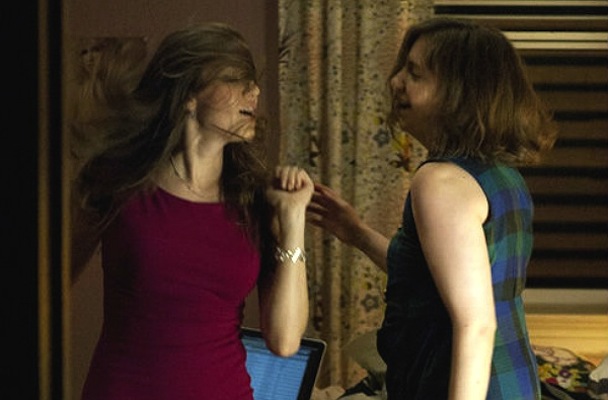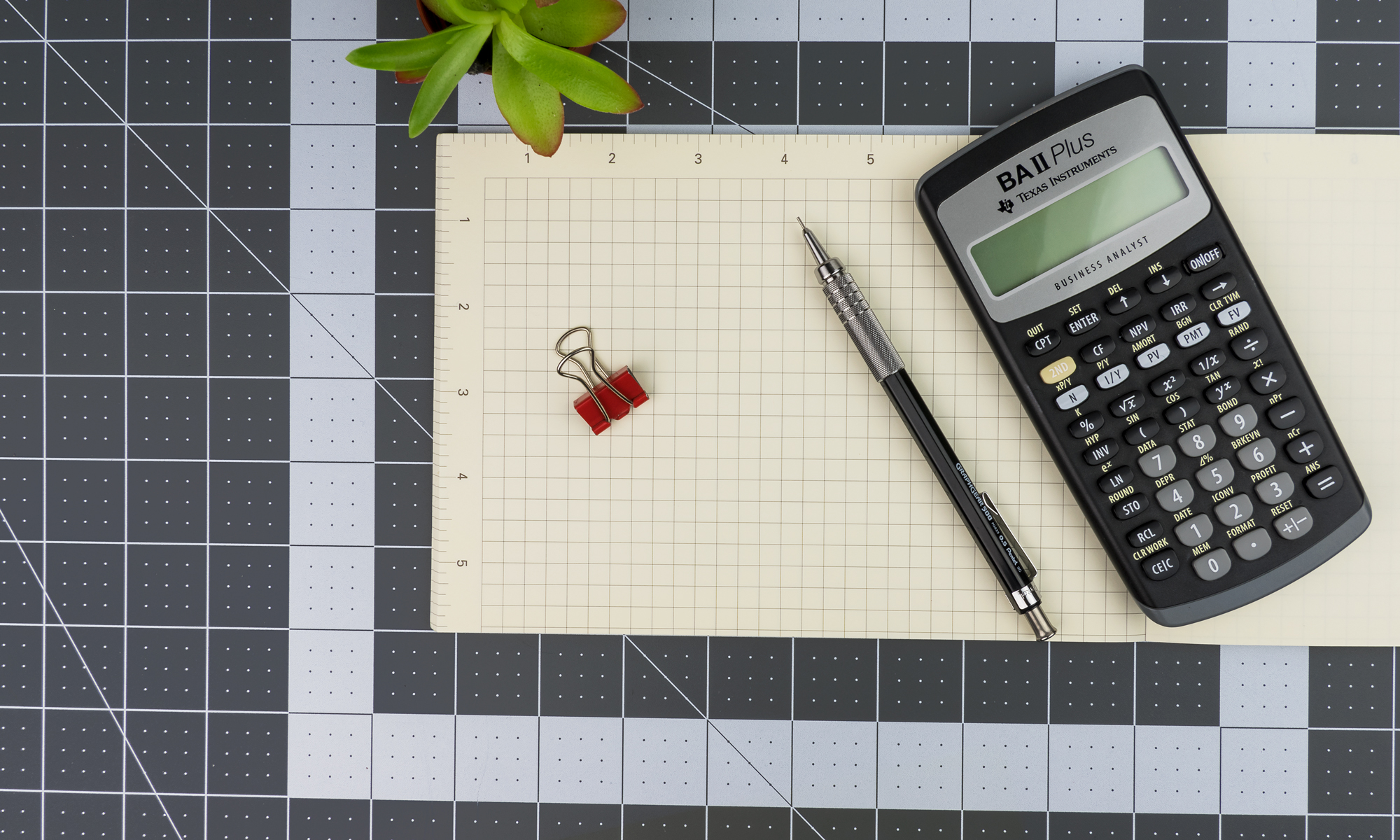
I learned a few important lessons from the second season of Girls: (1) Inventing an app will not only make a man wealthy but also inexplicably hotter and better at giving head; (2) E-Book editors enjoy quoting Tennessee Williams but hate reading about “Jane Austen type” friendships; (3) And when all of your female friends desert you, you should just wait for fun. to start playing, and a shirtless white knight will sprint through the streets of Brooklyn and break down a door simply for the pleasure of holding you. Female friendships, I’ve learned, are so 2012.
Since Hannah and Marnie’s epic first season fight, their friendship—and the show—have never been the same. In the second season’s premiere, Marnie asks Hannah whether their altered living situation has damaged their friendship; Hannah demurs. But it obviously has. Hannah and Marnie are no longer communally bathing and dancing around an apartment with a Wi-Fi network named “Madame Ovary.” They barely speak, and when they do, it’s usually to jab at the other’s weakest spot. After Marnie begins working as a hostess at a private club (which is about one step, and not a large step, above exotic dancing), Hannah claims that, unlike Marnie, she made a choice not to use her sexuality for financial gain. Marnie points out that this was not exactly a choice. Both women may be right, but these are not out-loud thoughts—at least not with your best friend.
When a coked-out Hannah later discovers that Marnie engaged in a physical act resembling sex with Elijah, she moves from passive-aggressive to aggressive-aggressive. It doesn’t matter that Marnie betrayed Hannah with Hannah’s GAY ex-boyfriend; what matters is that Marnie chose a few, fairly pathetic thrusts over her best friend. So Hannah attacks her with one of the worst of all female names: “bad friend.” Hannah’s tirade and Marnie’s tearful admission of guilt are clearly about more than Elijah’s confused penis. When Marnie is later asked why she remains friends with Hannah when their personalities clash and they have little—besides misery—in common, she says that Hannah has always been there. She isn’t sure why.
One of the more poignant moments between the two girls occurs when they are speaking on the phone and can, therefore, act like Facebook friends, editing their lives for fear of appearing vulnerable in front of the other: Hannah pretends her e-book consists of more than one sentence, and Marnie pretends that her “boyfriend” didn’t just pay her for collecting people’s coats at his party. They hang up without acknowledging that they are both unraveling. Their college friendship—much as it may have sustained them during their consequence-free years at Oberlin—may no longer fit.
Which brings me to the finale. I’m not sure exactly what happened here. The tonal shift between the penultimate episode, shot like a horror film with a Q-tip serving as the scariest villain EVER, and the 80s-rom-com finale was a bit much. Were Hannah bipolar, then maybe this disconnect could have served as a pretentious attempt to visually represent her mental state. But she has OCD, so I’m just confused. What has surprised viewers even more than the tonal shift is the apparent message that what these troubled young women need are male saviors. I doubt that the tidy endings offered in the finale will prove quite so tidy come season three, but what are we supposed to take away from this Greenpoint fairytale?
Marnie has obviously had a miserable year. She losses her best friend, losses her job, is forced to wear suspenders on a daily basis, and then sleeps with the only person on the show more loathsome than she is (i.e., Booth Jonathan). But she doesn’t react well. While it was understandable that Marnie needed to break up with Charlie in the first season because their relationship had run its course, you don’t break up with someone and then ask to sleep in their bed when they have a new girlfriend—even one who wears far too many headbands. You don’t crash this ex-boyfriend’s work event and sing a Kanye West cover. And you certainly don’t immediately attempt to rekindle this romance after said ex-boyfriend becomes instantly wealthy. Yet all of her poor decisions are apparently righted in the finale when she proclaims her everlasting love for someone whom she didn’t even want to share a room with last season. While Charlie obviously needs to forgive Marnie because he doesn’t appear to exist when she’s not on screen, Marnie’s speech was all affectation and crazy talk (“little brown babies”?). Where was all of this undying devotion when an unemployed Charlie followed her up to Hannah’s roof? In the time-warped Girls universe, that dinner party probably only took place about two weeks ago, so it’s unlikely that Marnie has, in the interim, rediscovered some unselfish desire to live with Charlie. She’s floundering, and he’s an attractive safety net. She no longer has Hannah to remind her of happier times, so she’s seeking out another reminder of college—one who, unlike Hannah, will be able to cover her rent. Marnie needs a wide shoulder to lean on and an open wallet. Hannah has neither.
While I doubt Charlie and Marnie’s relationship will end well, I really want Hannah and Adam to make it. Not since Brenda and Dylan listened to REM and considered the fate of their teenage relationship in 1991 have I so wanted a fictional couple to work out. So I’m not going to pretend that I didn’t smile at the image of Adam running through the streets of Brooklyn with Hannah’s face on his iPhone. But doesn’t Hannah still think Adam is kind of a sociopath, and didn’t Adam recently sexually humiliate another girl? Even though Adam does appear to be a strangely perfect fit for Hannah—he never wears a shirt; she never wears pants: it’s perfect—I simply can’t believe that Hannah’s troubled mental state, artistic crisis, and financial problems will all be solved by any relationship, especially one with someone who has as many issues as Adam. He may be fiercely sexy and, as Ray has noted, quote masculine, but he’s also an alcoholic, unemployed woodworker.
But Hannah’s impassioned voicemail to Jessa suggests why Adam is now so important. After Hannah screams that she no longer has any dependable female friends—especially not “that anorexic Marnie”—she calls Adam. The final image of Adam cradling Hannah implies that he can, for at least a short period of time, offer something that Marnie cannot: unconditional support. In an earlier scene, Hannah laments the fact that no one stops her from picking up shards of glass anymore because no one cares if she cuts herself. This is, of course, simply part of becoming an adult, but it’s also part of the reason we get into romantic relationships. We hope our partner will be the one person who cares enough to stop us from cutting ourselves too deeply.
Perhaps this is why Dunham chose to end the second season with the two principal females literally hanging onto the men in their lives—with no female friends in sight. Friendships last longer than most relationships, but because of biology or social conditioning, there comes a point when the man in a heterosexual woman’s life starts to seem more important than even her closest friends. It’s sad and less empowering than the Sex and the City message of unchangeable female bonds, but real friendships shift and evolve as everyone couples off. But neither Hannah nor Marnie wants to admit the sad truth that even if they become good friends again, they’ll probably never be as close as they were in college.
When Marnie walks into Hannah’s apartment in the beginning of the finale and halfheartedly offers to help her, it seems that their rift could still be mended. But Hannah doesn’t welcome her friend’s support; she hides in the bathroom. Before pocketing a candelabrum—because who doesn’t need another one of those—Marnie spies Hannah’s computer and reads the single sentence of Hannah’s E-book: “The relationship between two college girls is grander and more dramatic than any romance.” Perhaps we now understand why Hannah can’t finish her book. She no longer believes this.


but the thing about “girls” i find consistent is that these girls are CONSTANTLY making the “wrong” decisions. undoubtedly hannah will dump or betray adam again. marnie will dump or betray charlie again. and they will both be made to feel like horrible people for toying with these men’s hearts. it’s almost a patriarchal reversal except for the fact that the girls will emotionally suffer as a result of (what i assume to be) these obvious next plot-steps. but who knows.